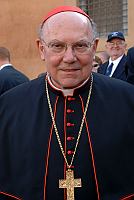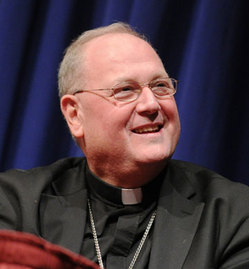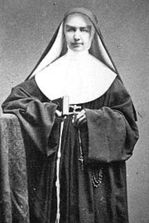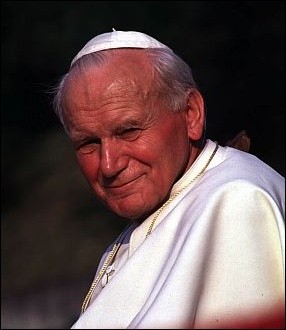Tag: Saint John Paul II
The Catholic Moment is over … where does hope exist?
The news media is hot to assess the Church and her legacy in the wake of Benedict XVIs abdication announcement on February 11, 2013. And, to be honest, much of the assessment is tedious and lacking substance, even from veteran and well-known and reliable Catholic thinkers. No shortage of prattle. Pick up the daily paper or turn on the TV/radio news and you will be treated to comparisons and rumination between the still current papacy (the Pope is not gone yet) and the previous one but too often with secular criteria and interests. Judging the pope and the Church with criteria other than a focus on God and the proclamation of the Gospel is not faithful. The media, we have to recognize, is not too conversant in matters of Catholic faith. In fact, they generally so very little and merely repeat clichés. Far more people are interested in questions of power, authority, the teaching, the numbers of faithful, “successes” and “failures,” the position of “the pope who resigned” and the like than they are in matters pertaining to the Word of God, the salvation of souls and to eternal life.
Hanging Concentrates the Mind
Be sure to have enough sleep and at least have eaten one meal today before you read and give some serious consideration to what Father George Rutler, pastor of the Church of Our Saviour (NYC) has to say about the death penalty. A recent essay was published today in Crisis Magazine online.
MOST Catholics, the informed and untrained, have no idea what the Church teaches about the subject. Many will recall that Pope John Paul II taught in Evangelium vitae (1995) and that he frequently spoke against the death penalty and it was the subject of intervention when he would visit a country where the death penalty was utilized (think of his visit to Missouri). A papal encyclical doesn’t change the teaching of the Church; it is however authoritative and it needs to be received. The matter of what level teaching an encyclical is, and to what degree it would bind conscience. For our purposes here, let’s say that a papal encyclical is authoritative and it involves the virtue of prudence but that it doesn’t contravene but it does nuance the teaching of the Church. Prudential judgment is just that, prudential. The Pope never changed the teaching of the Church. The blessed pope did try to reorient our thinking and the practice of killing legitimately convicted criminals. Remember, too, several years the heated debated between Cardinal Avery Dulles and Justice Scalia on the subject in First Things?
Father Rutler’s article is helpful in giving us yet another understanding of how we might understand the death penalty. Do we actually accept Christian belief in the salvation of one’s soul, that is, do we want to go to heaven? Read the article with openness, with a critical mind. As Saint Ignatius would teach, approach with the best of intentions to truly understand the other person. Knee jerk reactions are unacceptable for a Catholic who holds the integration of faith and reason. Father Rutler’s argument is Catholic on all levels.
The article…
Capital punishment does not inspire roaring humor in healthy minds, so wit on the subject tends to be sardonic. Two of the most famous examples, of course, are: “In this country it is wise to kill an admiral from time to time to encourage the others,” and “Depend upon it, sir, when a man knows he is to be hanged in a fortnight, it concentrates his mind wonderfully.”
The first, “pour encourager les autres,” is in “Candide” where Voltaire alludes to the death by firing squad of Admiral John Byng in 1757 for having let Mincorca fall to the French. The second was Samuel Johnson’s response to the hanging of an Anglican clergyman and royal chaplain William Dodd for a loan scam. Byng’s death was the last instance of shooting an officer for incompetence, while Dodd’s was the last hanging at Tyburn for forgery. Dodd’s unsuccessful appeal for clemency was ghostwritten by Dr. Johnson.
Blessed John Paul II
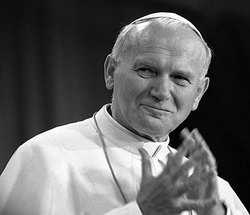 The Holy See has approved today as the liturgical memorial for Blessed Pope John Paul II. The opening collect, below, is the only prayer for the memorial and it does not appear in the Roman Missal.
The Holy See has approved today as the liturgical memorial for Blessed Pope John Paul II. The opening collect, below, is the only prayer for the memorial and it does not appear in the Roman Missal.
blessed John Paul the Second should preside as Pope over your universal Church,
grant, we pray, that instructed by his teaching, we may open our hearts to the
saving grace of Christ, the sole Redeemer of mankind.
Rediscover the newness of faith by a gift of self
I’m seeing headlines in the Catholic press that say or
suggest that a persecution of those who claim the importance of Christian faith
as essential to the person. This is making me think of what follows the HHS
mandate. Education and service of the poor? The work of knowing the contours of religious freedom are not for an elite group of Catholic academics, or the clergy, or the daily communicant. It is important for each of us to understand, and to live, and to share with others the fruit of a living faith in Christ. These issues have me searching for what the Church has said and is saying. John Paul II helps to begin to frame the issues.
Continue reading Rediscover the newness of faith by a gift of self
1 Year Anniversary of Beatification of Pope John Paul II
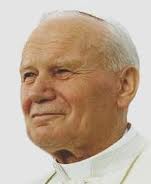 Today marks the first anniversary of the historic beatification of the iconic pope, John Paul II.
Today marks the first anniversary of the historic beatification of the iconic pope, John Paul II.
The Sexual Abuse of Minors: A Multi-faceted Response to the Challenge, Cardinal William Levada’s address
Today, in Rome,
there is a Gregorian University sponsored Symposium entitled “Towards Healing
and Renewal.” It is a four day gathering of professionals and clergy-types who
have responsibility for working with victims and family members of sexual
abuse. While not personally in attendance, Pope Benedict XVI was present
through his personal message sent to participants and with the presence of
several cardinals and bishops, Including William Cardinal Levada, 76, Prefect of
the Congregation for the Doctrine of the Faith. Cardinal Levada’s address, “The
Sexual Abuse of Minors: A Multi-faceted Response to the Challenge,”
follows.
The Pope’s message iterates in this context, as he has done in the
past, his hope and life’s work that “healing for abuse victims must be of
paramount concern in the Christian community,” with “a profound renewal of the
Church at every level.” Further, he “supports and encourages every effort to
respond with evangelical charity to the challenge of providing children and
vulnerable adults with an ecclesial environment conducive to their human and
spiritual growth” and he urges the participants in the Symposium “to continue
drawing on a wide range of expertise in order to promote throughout the Church
a vigorous culture of effective safeguarding and victim support.”
The Sexual
Abuse of Minors: A Multi-faceted Response to the Challenge Toward Healing and
Renewal” is the title given to this Symposium for Catholic Bishops and
Religious Superiors on the Sexual Abuse of Minors. For leaders in the Church
for whom this Symposium has been planned, the question is both delicate and
urgent. Just two years ago, in his reflections on the “Year for Priests” at the
annual Christmas greetings to the Roman Curia, Pope Benedict XVI spoke in
direct and lengthy terms about priests who “twist the sacrament [of Holy
Orders] into its antithesis, and under the mantle of the sacred profoundly
wound human persons in their childhood, damaging them for a whole lifetime.” I
chose this phrase to begin my remarks this evening because I think it important
not to lose sight of the gravity of these crimes as we deal with the multiple
aspects the Church’s response.
Law and the Gospel of Life –Archbishop Dolan addresses a NY crowd
Fordham Law School’s Institute on Religion, Law & Lawyer’s Work hosted Archbishop Timothy Michael Dolan, PhD, for an inaugural address in the Law and the Gospel of Life series.
Sadly, it didn’t make the news, well not much was said around the area about it. Fordham University published this brief press release read here. The crowd exceed initial expectations and a change of venue was made. Cardinal-designate Dolan centered his comments on Blessed John Paul II landmark encyclical, the Evangelium Vitae (1995). An excerpt of Dolan’s remarks follows, below is the link to his entire text:
The Gospel of Life proposes an alternative vision of law and culture, one that provides an antidote to the pragmatic nihilism that produces a Culture of Death. It seeks to recapture the essential relationship between the civil law and the moral law, and to foster a culture in which all human life is valued and authentic human development is possible.
Continue reading Law and the Gospel of Life –Archbishop Dolan addresses a NY crowd
2 new Blesseds added US liturgical calendar
At their annual
meeting, the US bishops voted to have add to the US liturgical calendar Blessed
John Paul II and Blessed Marianne Cope, both are optional liturgical memorials
in the proper of saints. October 22 is designated to honor Blessed John Paul and January 23
for Mother Marianne.
date of the person’s death, which in Mother Marianne’s case was Aug. 9, 1918.
However, that date is the feast of St. Teresa Benedicta of the Cross (Edith
Stein), who died Aug. 9, 1942. Jan. 23 is the optional memorial in the United
States for St. Vincent de Paul. That date was transferred from Jan. 22 so that
the U.S. church can observe the Day of Prayer for the Legal Protection of
Unborn Children — which itself shifts to Jan. 23 when Jan. 22 falls on a
Sunday.”
Blessed John Paul II Mass Collect
Today is the first time the Church prays the Mass for the liturgical memorial of Blessed John Paul II. To date, Blessed John Paul II’s feast is observed in the USA as an optional memorial. The US Conference of Bishops is requesting of the Holy See that this feast be an obligatory liturgical memorial. The second reading for the Office of Readings is here. Other texts for Mass and the Divine Office are taken from the “Common of Pastors: For a Pope.”
The Collect (opening prayer for Mass) is given here in English and Latin:
O God, who are
rich in mercy and who willed that the Blessed John Paul II should preside as Pope
over your universal Church, grant, we pray, that instructed by his teaching, we
may open our hearts to the saving grace of Christ, the sole Redeemer of
mankind. Who lives and reigns.
Deus, dives in
misericórdia, qui beátum Ioánnem Paulum, papam, univérsae Ecclésiae tuae
praeésse voluísti, praesta, quaésumus, ut, eius institútis edócti, corda nostra
salutíferae grátiae Christi, uníus redemptóris hóminis, fidénter aperiámus. Qui
tecum.
The Scripture would be: first
reading is Isaiah 52:7-10; the responsorial psalm is 96/95:1-2a, 2b-3, 7-8a,
10); the alleluia is John 10:14; the Gospel is John 21:15-17.
The Congregation for Divine Worship and the Discipline of the Sacraments published on April 2, 2011, the “Decree Concerning Liturgical Worship in Honour of Blessed John Paul II.”


